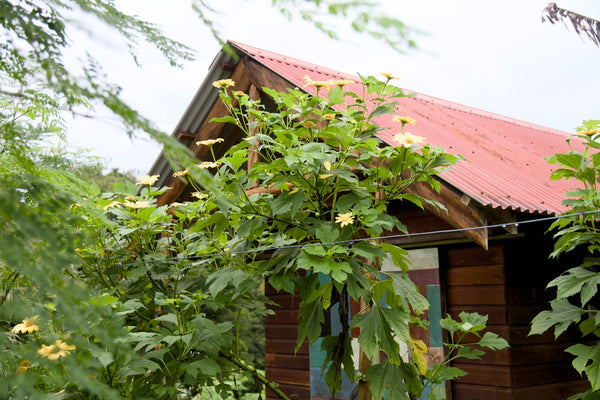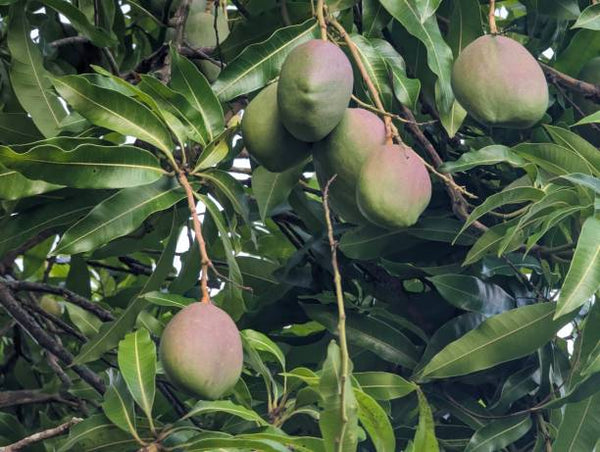🌱 Common Name: Holy Basil
🌿 Botanical Name: Ocimum tenuiflorum or Ocimum sanctum
🌏 Native Region: Indian subcontinent; widely grown in Southeast Asia.
✨ Brief History
Holy Basil, or Tulsi, has been revered in Indian culture for over 5,000 years. It holds a prominent place in Ayurveda, Hinduism, and traditional medicine. Known as the "Queen of Herbs," Tulsi is considered sacred in Hindu households and temples. It is associated with the goddess Lakshmi and symbolizes purity, health, and prosperity. Tulsi plants are often grown near homes for their spiritual significance and air-purifying qualities.
🍵 Culinary Uses
Tulsi is widely used in food and beverages for its unique flavor and health benefits:
- Teas: Tulsi leaves are brewed into herbal teas, often blended with ginger, honey, or lemon.
- Soups and Curries: Fresh leaves are added to traditional Indian recipes for a subtle, earthy aroma.
- Infused Oils and Sauces: Used in chutneys, sauces, and marinades.
Its peppery and slightly bitter flavor enhances a variety of dishes while adding nutritional value.
🌿 Medicinal Benefits
Tulsi is a cornerstone of Ayurvedic medicine and offers numerous health benefits:
- Stress Relief: Known as an adaptogen, Tulsi helps the body adapt to stress and supports mental clarity.
- Respiratory Support: Can help treat colds, coughs, and respiratory ailments due to its antimicrobial and anti-inflammatory properties.
- Immunity Booster: Packed with antioxidants and essential oils, it helps to strengthen the immune system.
- Digestive Health: It can improve metabolism, reduce bloating, and aids digestion.
- Skin and Hair Care: Tulsi extracts are used in skincare for their antibacterial and anti-aging properties.
- Chronic Disease Management: May reduce blood sugar and cholesterol levels, supporting heart health.
🏛️ Cultural Significance
Tulsi has deep roots in Indian spirituality:
- Considered sacred, it is often planted near homes and temples.
- Rituals involve offering Tulsi leaves to deities, particularly Vishnu and Krishna.
- Its presence is believed to purify the environment and ward off negative energies.
🌞 Care and Cultivation
Tulsi is easy to grow in home gardens:
- Sunlight: Requires at least 4–6 hours of sunlight daily.
- Soil: Prefers well-draining, nutrient-rich soil.
- Watering: Keep the soil slightly moist but avoid waterlogging.
- Pruning: Regular pruning encourages bushy growth.
🌱 Propagation
Tulsi is very easy to propagate by cuttings or seed. If you let the plants establish in your garden they will drop seeds and self propagate season after season.
- Seeds: Sow seeds shallowly in warm soil.
- Cuttings: Use healthy stems and root them in water or moist soil.
🌿 Grow Your Own Sacred Tulsi at Home! 🌟
Bring the power of nature and tradition to your garden with Holy Basil (Tulsi)—a symbol of health, harmony, and positivity.
Why Grow Tulsi?
✔ Boost Your Health: Rich in antioxidants, Tulsi supports immunity and reduces stress.
✔ Purify Your Space: Known for its air-purifying qualities and positive energy.
✔ Easy to Grow: Perfect for beginners—thrives in pots or garden beds.
🛒 Order Your Tulsi Plant Today
Add this sacred herb to your home or garden and experience its countless benefits firsthand. 🌱
👉 Shop Now and start your journey with Tulsi!
Let us help you grow a greener, healthier future. 🌿✨






0 comments